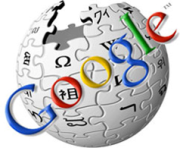A Google Knol is worth a thousand Wikipedia's

knol (n?l) noun: 1: a small rounded hill or mound noun: 2: a unit of knowledge

I've wanted to write about Knol for some time, but other things kept getting in the way. Nevertheless, Knol has been slowly progressing in popularity, with it recently publishing it's 100,000 knol.
Wikipedia is an online encyclopedia, and that will never change. There's no doubt it dominates the Internet, and is great for looking up references and quick bits of information. However, abuse is rife on the site and there have been so many inaccuracies recorded over the time of it's life.
It doesn't matter whether you want to publish or just read; you can do anything you like with it. It's not as flexible as a wiki page, where you can edit it just by the off chance something is wrong, but you can still be a part of a team working on an article together. Take a few examples of random, but interesting articles to read: computing forensics, an introduction to pneumothorax, why vaccines kill children, and archeology and its contributions to understanding ancient Greece.
With the search capability, it's a piece of cake searching for an article. Google uses its own in-house search engine to look over every knol in the database to ensure it picks out exactly what you want.
Even I wrote one.
You name it, it's on there. If it's not, why not write about it? It doesn't have to be on anything in particular, but it's a brilliant resource to look for articles which interest you. Sure, you won't be able to find many articles which contribute to your final coursework mark, and there are no verification methods as such to show how accurate an article is. But think of Knol as a single unit of knowledge, spread over an entire website, offering students and non-students alike, a view into a different world's perspective.
And with their offer for writing a "for dummies" article, it may not get you any extra credit to your university course but it'll earn you kudos (and sometimes payment) for knowledge well spread.